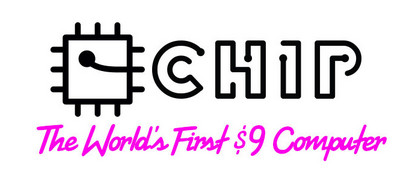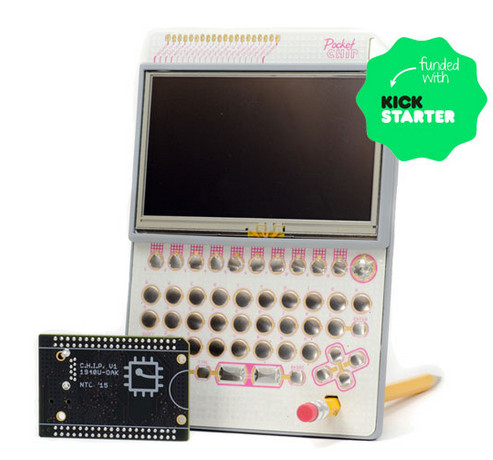 The Bootlin team wishes you a Happy New Year for 2016, with many new bits to enjoy in your life!
The Bootlin team wishes you a Happy New Year for 2016, with many new bits to enjoy in your life!
Bootlin is happy to take this opportunity to share some news about the latest training and contribution activities of the company.
Bootlin work on the $9 computer
As announced in our previous newsletter, Bootlin has been working intensively on developing the low-level software support for the first $9 computer, the C.H.I.P by Next Thing Co.
Next Thing Co. has successfully delivered an initial batch of platforms in September to the early adopters, and has started shipping the final products in December to thousands of Kickstarter supporters.
Those products are using the U-Boot and Linux kernel ported by Bootlin engineers, with numerous patches submitted to the official projects and more to be submitted in the coming weeks and months:
- Support for the C.H.I.P platform itself, in U-Boot and in the Linux kernel;
- Support for audio on Allwinner platforms added to the Linux kernel;
- Development of a DRM/KMS driver for the graphics controller found on Allwinner platforms;
- Significant research effort on finding appropriate solutions to support Multi-Level Cell NANDs in the Linux kernel;
- Enabling of the NAND storage in Single-Level Cell mode, until the Multi-Level Cell mode can be enabled reliably;
- Addition of NAND support in the fastboot implementation of U-Boot, which is used to reflash the C.H.I.P.
We will continue to work on the C.H.I.P over the next months, with among other things more work on the graphics side and the NAND side.
Kernel contributions
The primary focus of the majority of our customer projects remain the Linux kernel, to which we continue to contribute very significantly.
Linux 4.2
We contributed 203 patches to this release, with a new IIO driver for the ADC found on Marvell Berlin platforms, a big cleanup to the support of Atmel platforms, improvements to the DMA controller driver for Atmel platforms, a completely new driver for the cryptographic accelerator found on Marvell EBU platforms.
In this cycle, our engineer Alexandre Belloni became the official maintainer of the RTC subsystem.
See details on our contributions to Linux 4.2
Linux 4.3
We contributed 110 patches to this release, with mainly improvements to the DRM/KMS driver and DMA controller driver for Atmel platforms and power management improvements for Marvell platforms.
See details on our contributions to Linux 4.3
Linux 4.4
We contributed 112 patches to this release, the main highlights being an additional RTC driver, a PWM driver, support for the C.H.I.P platform, and improvements to the NAND support.
See details on our contributions to Linux 4.4
Work on ARM 64-bit platform
We have started to work on supporting the Linux kernel on several ARM 64 bits platforms from different vendors. We will be submitting the initial patches in the coming weeks and will progressively improve the support for those platforms throughout 2016 where a major part of our Linux kernel contribution effort will shift to ARM 64-bit.
Growing engineering team
Our engineering team, currently composed of six engineers, will be significantly expanded in 2016:
- Two additional embedded Linux engineers will join us in March 2016 and will be working with our engineering team in Toulouse, France. They will help us on our numerous Linux kernel and Linux BSP projects.
- An engineering intern will join us starting early February, and will work on setting up a board farm to contribute to the kernelci.org automated testing effort. This will help us do more automated testing on the ARM platforms we work on.
Upcoming training sessions
We have public training sessions scheduled for the beginning of 2016:
- Embedded Linux development training
- February 29 – March 4, in English, in Avignon (France)
- Embedded Linux kernel and driver development training
- March 14-18, in English, in Avignon (France)
- Android system development training
- March 7-10, in English, in Toulouse (France)
We also offer the following training courses, on-site, anywhere in the world, upon request:
- Embedded Linux development
- Embedded Linux kernel and driver development
- Android system development
- Yocto Project and OpenEmbedded development
- Embedded Linux development with Buildroot
Contact us at training@bootlin.com for details.
Conferences
We participated to the Embedded Linux Conference Europe in Dublin in October 2015, and gave a number of talks:
- Supporting Multi-Function Devices in the Linux Kernel: A Tour of the mfd, regmap and syscon APIs, by Alexandre Belloni (slides, video)
- Kernel Maintainership: An Oral Tradition, by Grégory Clement (slides, video)
- Learning the basics of Buildroot, by Thomas Petazzoni (slides, video)
- Keynote: Linux Kernel SoC Support Mainlining Tips (By a Bunch of Other French People), by Thomas Petazzoni (slides)
In addition, our engineer Thomas Petazzoni was invited to the Linux Kernel Summit, an invitation-only conference for the kernel maintainers and developers. He participated to the three days event in Seoul, South Korea. See Bootlin at the Linux Kernel Summit 2015.
At the beginning of 2016, our entire engineering team will be attending the Embedded Linux Conference in San Diego (US), which means that no less than 9 engineers from Bootlin will be present at the conference!
Porting Linux on ARM seminar
In December 2015, we gave a half-day seminar entitled “Porting Linux on ARM” in Toulouse (France). The materials, in English, are now freely available on our web site.



